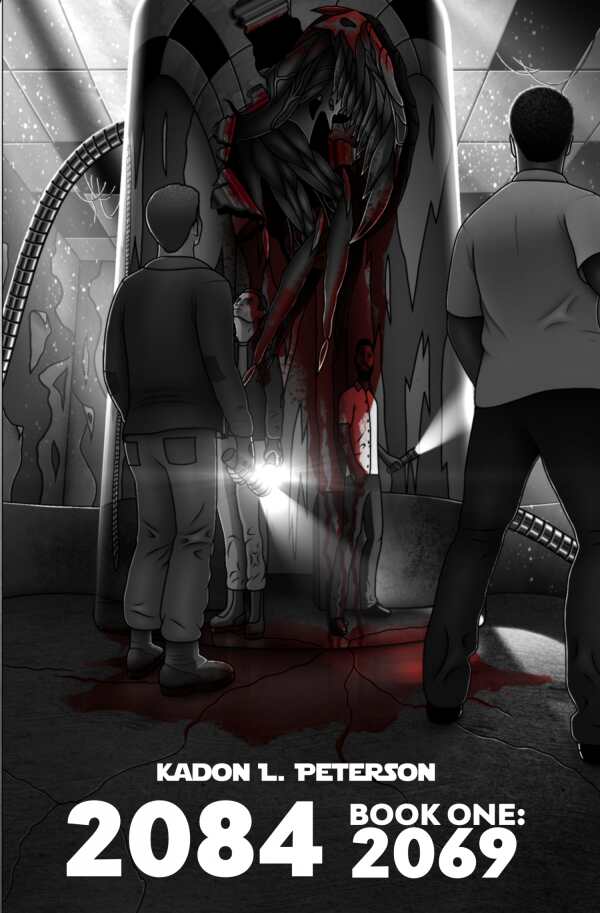
2084
Book One: 2069
In the science fiction series opener 2084, human beings face a new kind of warfare, working to preserve the very spirit of their existence.
In Kadon L. Peterson’s science fiction novel 2084, human beings can either submit to government-mandated evolution or be declared obsolete and be terminated.
After a devastating war in the 2030s, much of the planet, including the former United States, is under the control of the World Peace Authority, a global organization whose mission it is to develop “a more peaceful people” for “a more peaceful world.” The WPA’s solution to humanity’s woes is to eliminate human nature itself by becoming the sole source of human procreation. All natural births are made illegal.
Fed up with these evolutionary tyrants and at risk of being sterilized against his will, Dune, a WPA employee, vows to destroy the organization, even if that means joining a group of religious terrorists. However, Dune is no hero. He wants to create the world after the WPA in his image, and he’s willing to use whomever it takes to realize his goal.
Establishing a world in which natural-born humans are illegal in all forms, and in which lab-grown androgynous models are becoming more prevalent, the novel is entertaining. Its sense of tension is immediate, as well. But Dune’s narration, much of which is confined to his inward thoughts, impedes this excitement. He spends too much time contemplating psychological and philosophical theories; these musings stretch for several pages, and are often too abstract to hold interest.
Further, while the story’s first act is devoted to world building and action, which culminates in an attempt to topple the WPA overlords, it is followed by a long waiting period in which it is uncertain whether the plan worked. This uncertainty lasts for the rest of the book, which also devotes itself to side narratives that do little to advance the plot. And most of the cast is underdeveloped, filled out by people who behave in rigid manners. Only Dune and his partner Fennec discuss their pasts, showing what made them who they are now. Others exist in opposition to Dune and his radical ideas, but most end up acquiescing.
Themes of individualism are overpronounced throughout; this is also what motivates Dune. While the autocratic government and a religious cult fight over the hearts and minds of humanity, neither group offers a real sense of freedom, despite their claims to the contrary. Dune spends the entire story trying to show the members of both parties that they are two sides of the same coin and to share his perspective that the one way out of bondage is for people to determine their own realities on an individual basis.
In the science fiction series opener 2084, human beings face a new kind of warfare, working to preserve the very spirit of their existence.
Reviewed by
Ian Dailey
Disclosure: This article is not an endorsement, but a review. The publisher of this book provided free copies of the book and paid a small fee to have their book reviewed by a professional reviewer. Foreword Reviews and Clarion Reviews make no guarantee that the publisher will receive a positive review. Foreword Magazine, Inc. is disclosing this in accordance with the Federal Trade Commission’s 16 CFR, Part 255.
